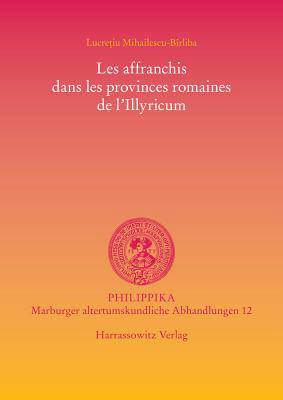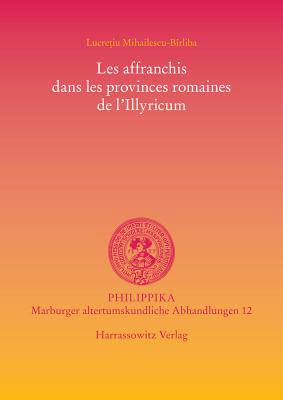
Bedankt voor het vertrouwen het afgelopen jaar! Om jou te bedanken bieden we GRATIS verzending (in België) aan op alles gedurende de hele maand januari.
- Afhalen na 1 uur in een winkel met voorraad
- In januari gratis thuislevering in België
- Ruim aanbod met 7 miljoen producten
Bedankt voor het vertrouwen het afgelopen jaar! Om jou te bedanken bieden we GRATIS verzending (in België) aan op alles gedurende de hele maand januari.
- Afhalen na 1 uur in een winkel met voorraad
- In januari gratis thuislevering in België
- Ruim aanbod met 7 miljoen producten
Zoeken
Les Affranchis Dans Les Provinces Romaines de l'Illyricum
Lucretiu Mihailescu-Birliba
Paperback | Frans
€ 147,95
+ 295 punten
Omschrijving
This book treats the slavery problem in the Roman provinces in the Balkan-Danubian area (Dalmatia, Pannonia, Dacia, Moesia) which corresponds with territories of former communist countries (Hungary, former Yugoslavia, Romania and Bulgaria). This problem was partially treated before 1989, but from the perspective of class struggle between the slaves and their masters. The work is structured in two main parts: one deals with imperial freedmen and slaves, the other with private freedmen. The difference between these two categories is essential: the imperial freedmen and slaves are officially employed in important bureaus of the emperors' offices and their material and social status is often very high, while the private freedmen who could overcame their juridical status through wealth and municipal honours were only a few. In comparison with other western provinces of the Roman Empire, the social status of freedmen in the Illyrian provinces is not essentially different. The specific features of this social category in the studied area is given by the functions occupied by the imperial freedmen and slaves in administrations (especially in mining administration, which was a particularity for provinces like Dacia, Dalmatia or Moesia Superior). (Text in French language)
Specificaties
Betrokkenen
- Auteur(s):
- Uitgeverij:
Inhoud
- Aantal bladzijden:
- 368
- Taal:
- Frans
Eigenschappen
- Productcode (EAN):
- 9783447053808
- Verschijningsdatum:
- 1/01/2007
- Uitvoering:
- Paperback
- Formaat:
- Trade paperback (VS)
- Afmetingen:
- 170 mm x 239 mm
- Gewicht:
- 906 g

Alleen bij Standaard Boekhandel
+ 295 punten op je klantenkaart van Standaard Boekhandel
Beoordelingen
We publiceren alleen reviews die voldoen aan de voorwaarden voor reviews. Bekijk onze voorwaarden voor reviews.









